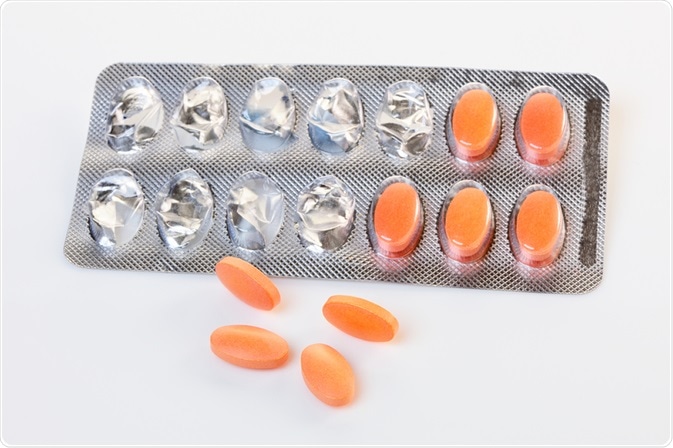Statins are a class of drugs used to lower cholesterol levels initially identified in the early 1970s from Penicillium and Aspergillus fungi. All statins competitively inhibit 3-hydroxy-3-methylglutaryl coenzyme (HMG-CoA) reductase, the principal rate-limiting enzyme that controls the conversion of HMG-CoA to mevalonic acid.
Coronary artery disease still represents the leading cause of death in both the industrialized and developing world. Elevated blood cholesterol is an important cause of atherosclerosis. Large-scale clinical trials have shown that lowering blood cholesterol substantially reduces major coronary events and coronary heart disease deaths.

Statins. Image Credit: Roger Ashford / Shutterstock
Primary uses
Statin treatment is usually recommended for three groups of individuals: those who have a high cholesterol level as a result of a faulty gene they have inherited (also known as familial hypercholesterolemia), patients with pre-existing heart disease, and people who are healthy at the moment but have a high risk of developing heart disease in the future.
These drugs have been shown to lower low-density lipoprotein (LDL or “bad” cholesterol) levels from 21% to 63% and to raise high-density lipoprotein (HDL or “good” cholesterol) levels from 4% to 16%. Studies have shown that in certain populations, statins reduce the risk of stroke, heart attack, and even death from cardiovascular disease by 25% to 40%.
Statins can lower human plasma cholesterol by increasing the uptake of LDL via the LDL receptor. Even though LDL receptor upregulation is the primary mechanism of action, these drugs can also decrease the liver's production of apolipoprotein-B-containing lipoproteins.
As mentioned before, statins are also recommended for patients at a high risk of developing heart disease. On average, statins can lower LDL cholesterol by 70 mg/dl (1.8 mmol/l), which translates into a 60% decrease in the total number of cardiac events and a 17% reduction of stroke risk after long-term treatment.
The anti-inflammatory and anti-oxidative properties of statins also contribute to improved prognosis in patients with coronary artery disease. The 2006 ASTEROID study revealed direct ultrasound evidence of plaque regression in patients on statin therapy.
Other potential indications
In addition to elevated blood cholesterol, other possible therapeutic uses have emerged for statins, including the treatment of immune and inflammatory disorders and as anti-cancer drugs. Statins have also been explored as potential treatments for parasitic diseases, such as trypanosomiasis, leishmaniasis, Chagas' disease, and malaria.
The use of statins seems to have an antihypertensive effect that may be clinically significant. These drugs have also been shown to stimulate bone formation in experimental animals, supported by epidemiological data that links statin use with a decreased risk of fracture.
Statins may inhibit the growth of various malignant cell types – including breast, pancreatic, gastric, prostate carcinoma, melanoma, mesothelioma, neuroblastoma, and acute myeloid leukemia cells. Early phase studies have demonstrated that cellular signaling modulation can ultimately lead to pro-apoptotic, anti-angiogenic and immunomodulatory effects but also restore chemosensitivity in several hematologic cancers.
How do statins prevent heart attacks and strokes?
Further Reading
Last Updated: Mar 11, 2021